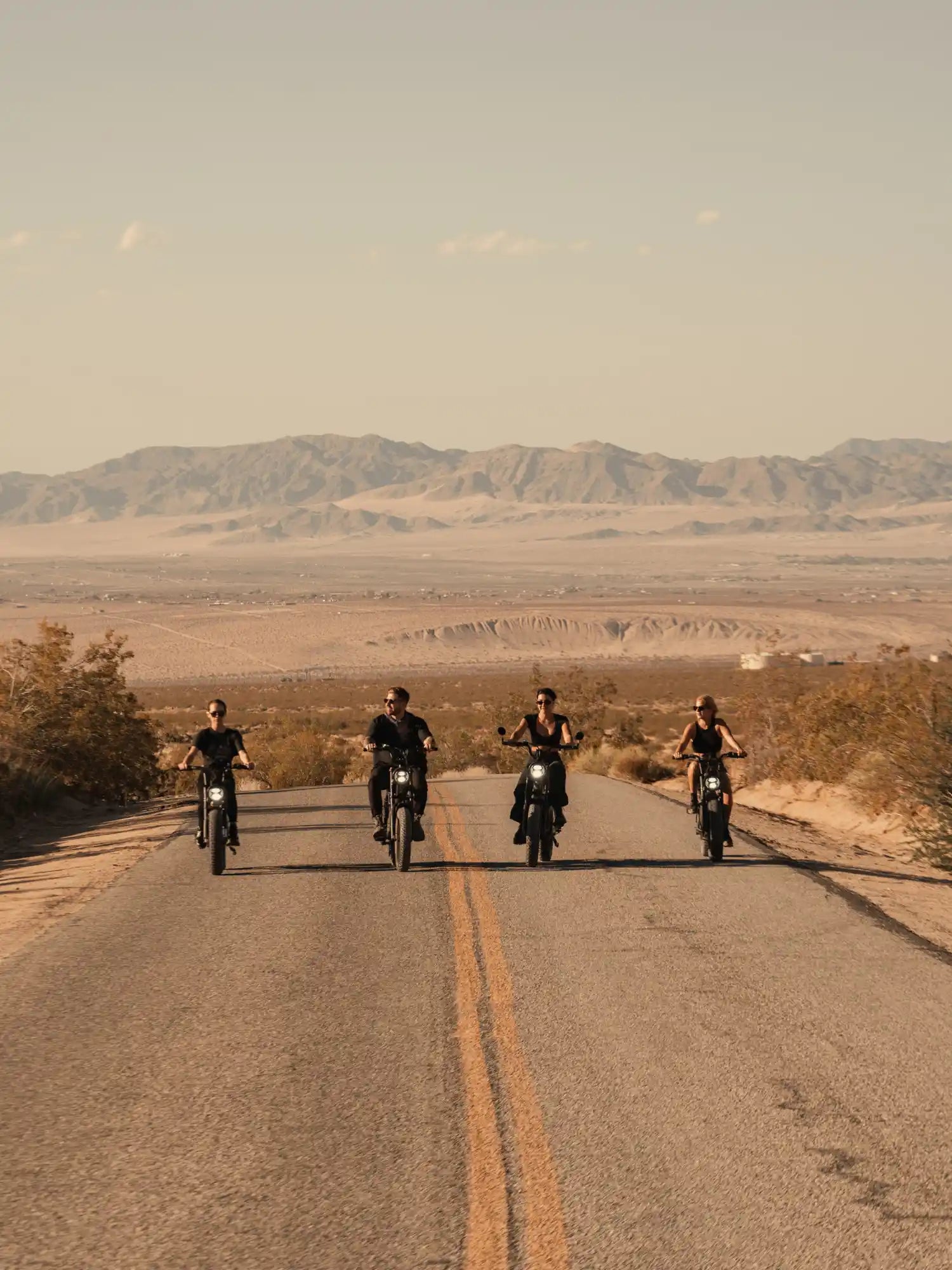E-bikes are changing the way we move to work and explore the great outdoors today. From city streets to trails, they offer a sustainable, efficient, and fun way to get around. There's just one question that keeps most of us awake all night: to rent or buy an e-bike. This guide is intended to help eco-conscious commuters and outdoor adventurers, city slickers, and sustainable living ambassadors make the right choice for their way of life.
In this post, we will examine some pros and cons of renting versus owning an e-bike, follow up with some practical tips for making your choice, and then round things off with the ways e-bikes contribute to a greener earth. By the end, you'll know quite clearly what route to take. Let's get going!
The Rise of E-Bikes
Electric bikes are fast becoming a favorite for so many. Their electric motors make them pedal-assisted, to that end making it fairly easy and fun to ride. There are e-bikes across several models, which offer pedal-assisted riding in city commutes, mountain biking, and even long-distance touring.
Numbers are talking now about e-bikes being a trend in sales, as seen in a projection by Deloitte that says e-bike sales could spike to 130 million globally between 2020 and 2023. This fact is associated with increased environmental consciousness, urban congestion, and technological advancement in e-bikes.
Renting an E-Bike
The ability to charter e-bikes from places of your choice and ride or use them in the short term provides flexibility, hence an ideal package for tourists, occasional riders, and sometimes users who might be trying out several models before they buy one.
This sets another major advantage for rental: the upfront fee for this is much lower, so you get all the benefits of an e-bike without having to make such a huge investment up front. The other good thing about a rental agreement is that maintenance usually will be part of this agreement, which means that one will no longer be repairing or maintaining an e-bike—a headache removed, and this makes it essentially hassle-free if one does not want to manage the technical part of having an e-bike.
Drawbacks of Renting
While it might seem cheap to rent, the cost for an e-bike will begin to add up. If you are hiring frequently, then these costs will rise very fast in such a case of frequent use. These intermittent costs of hiring need to be balanced against the one-time savings by owning your e-bike.
Another disadvantage of renting is that it is limited to availability, especially during peak hours or popular locations. This could involve situations wherein the e-bike is not available just when you really need it - the worst case for any commuter who uses it daily. Another drawback of rented e-bikes is that they cannot be personalized at all. You will definitely have fewer options with the model, size, and the features you want to have, which might put people off who value their comfort and specific functionalities.
Owning an E-Bike
The bikes will in the long run save one much money. The total cost remains low after the initial investment, with no never-ending rental fee. Proper care will keep the e-bike going for years, hence serving at a low cost.
Another major advantage of owning is the complete freedom to customize the e-bike to your own taste. You could decide on the model, size, and other numerous features best suited for a much more comfortable and fulfilling experience in biking. Another advantage of e-bikes is that they are able to retain value well; at any point in time, should you like to upgrade your model or simply find that you no longer need the bike, you would be able to sell it and still recover part of the money put into it, which adds to the owner's value in terms of financial aspects.
Drawbacks of Owning
The high initial costs are among the major challenges involved in the acquisition of e-bikes. E-bikes have been really expensive to come by, and this high-cost effect would discourage many potential buyers. However, a saving perspective in the long term would make such an investment worthwhile.
Another aspect that one has to keep in mind is the responsibility for the maintenance and repairs that come with the ownership of such e-bikes. This can take up time, labor, and sometimes the incurring of expenses that are not appealing to sections of society where minimal investment in upkeep is desired. Secure storage of your e-bike, especially in urban areas, could be another problem. One has to ensure that the bike is safe from thieves and weather, and in the absence of the right space, this could really bring an issue.
Factors to Consider
While choosing between renting and owning an e-bike, one can consider the frequency of riding. Frequent riding will likely tip your balance to the benefits of ownership, while those riding sporadically will find that renting is way cheaper.
Second, it's all about your wallet now and later. Although renting an e-bike is cheaper upfront, usually, when looking at the long-term picture, owning an e-bike gives greater value for money. Your lifestyle matters too—city riders with less storage will want to rent; those who cycle frequently or just enjoy their outdoors time may want to own a bike for its many perks.
Environmental Impact
While sharing or rental of an e-bike reduces carbon emissions to some extent, the latter brings additional advantages to environmental conservation by way of trips saved to rental locations for hiring. It is for this reason that ownership, in relation to transport-related reduced emissions, is a slightly greener option.
For people who are serious about living green, an e-bike is more geared toward long-term sustainability because it helps users keep going out on their green machines. On the other hand, rental facilities promote a business on a local level and the sharing economy, which has a positive impact on local sustainability. Either way, there are positive aspects to both options, making either choice a step in the right direction toward sustainability.
Making the Decision
It is highly recommended to test-ride the e-bike before purchasing. Leasing gives you a chance to determine the kind of model or feature that can suit you well and make a good purchase decision.
Also, plan your finances well to cater to the cost of the bike, the money for maintenance, and possible savings. Compare the costs with what you pay for rentals in order to know what works best for you in the long term. Consider, too, that a daily user - and someone committed to green living - should be an owner. People who want flexibility or will ride only once in a while should rent. Last but not least, there are social benefits to e-biking, such as riding with others and availing oneself of group rides, engaging in conversation, and getting valuable tips that add up to the pure enjoyment of riding an e-bike.
Investing in Quality
Choosing a good brand with products like our Gibbon and Bonobo e-bikes is just about the closest way to ensuring the quality, durability, and performance of an e-bike. Always research well and then settle on those brands that seem to exude reliability and customer satisfaction.
Moreover, consider the warranty and customer support for your ebike. An extensive warranty and customer support will give peace of mind and assurance that help is available when required.
Conclusion
E-bikes are brilliant in terms of convenience, great health, and environmental sustainability. Whichever you choose to do - whether to rent or to own - both have pros and cons. To the ecologically conscious daily commuters and outdoor addicts, the choice must ultimately be based on personal preference, lifestyle, and budget.
Still not sure? Then rent one. Ride an e-bike and fall in love. Once you're confident, think of investing in one that will suit your needs and preferences. Either way, you're doing good for your health, wallet, and the environment.









Leave a comment
All comments are moderated before being published.
This site is protected by hCaptcha and the hCaptcha Privacy Policy and Terms of Service apply.